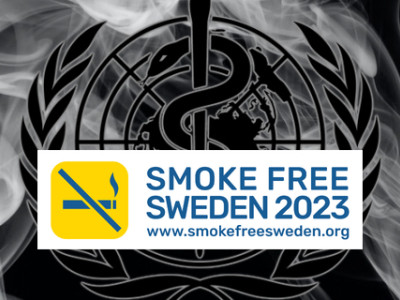The study, published in the American Journal of Respiratory Cell and Molecular Biology, claims to show “that vaping changes the expression of genes and production of proteins in respiratory cells, as well as altering virus-specific antibody production.”
Lead author Meghan Rebuli, an assistant professor at the UNC Department of Pediatrics, said: “In many of the study participants, we observed more changes to the immune response in e-cigarette users than we did in smokers. All of these factors have the potential to adversely affect response to a virus and immunity post-infection. While we used influenza as a model, this suggests that e-cigarette users are likely more susceptible to respiratory viruses than are non-smokers, and this likely includes SARS-CoV-2, the virus that causes coronavirus disease 2019 (COVID-19).”
The bias running through the study is clear from the outset where the team write: “Proponents of their use suggest that E-cigs are a less harmful alternative to cigarettes and can be used as a cigarette cessation device”.
Couching vaping’s relative safety and efficacy as something only believed by the “proponents” seeks to imply that those opposed to vaping disagree. The science supporting vaping is clear and irresistible. Advocates and vapers would welcome clear and reliable studies showing harm as this adds to making an informed choice – this isn’t one of those papers.
The authors then link the lung outbreak EVALI to ecigs even though it is accepted by everybody that the lung disease was caused by an additive in an illegal black market cannabis product not found in any eliquids.
Finally, in the press release accompanying the paper, the team talk about vaping in the same way they used to discuss cigarettes by saying vaping is, “composed of thousands of chemicals”. An absolute nonsense.
Justifying the study, they say: “Considering the concurrent threat of increased e-cigarette use and emerging viral infections, such as COVID-19, determining whether and how e-cigarette use affects antiviral host defense [sic] functions is of significant public health importance.”
To conduct the experiment, the researchers “inoculated human volunteers with live attenuated influenza virus (LAIV) to examine innate immune response to influenza infection.”
The team say, “that though the amount of markers of viral load did not differ among the three groups, expected increases in nasal epithelial lining fluid anti-LAIV IgA – which is a potential indicator of developed immunity post-infection – did not occur in e-cigarette users and cigarette smokers.”
Ilona Jaspers, the paper’s other lead author, commented: “This is not good. We want to see IgA levels increase during infection. It’s the body’s natural way to defend against an invader. Here we saw that both smoking and e-cigarette use hampers IgA levels. The suppressed expression of important immune genes is also concerning and in line with an overall suppression of appropriate immune responses.”
Nobody is accusing the team of fabricating their findings, nor that the analysis of serum cotinine and urine NNAL measures at the University of California at San Francisco was suspect, but the results are diametrically opposed to the lived experience of ex-smokers who have switched to vaping.
Planet of the Vapes (POTV) asked forum members and Twitter users how their experience of influenza had been since making the switch. Anecdotal and far from scientific, the response was striking.
On POTV, 39% said vaping had not exacerbated a problem and their experience of flu was not worse than before, 46% reported having fewer bouts of flu and (when they did contract it) the symptoms were less severe. 14% said their flu bouts were as severe but occurred less frequently.
On Twitter, respondents overwhelmingly reported better health with regards to contracting influenza. It is clear that vapers believe switching has dramatically reduced their harm exposure, so why does this study contrast this belief so strongly?
Study author Meghan Rebuli was asked to comment on the anecdotal evidence from vapers but failed to respond to this striking discrepancy.
Related:
- “E-cigarette Use Alters Nasal Mucosal Immune Response to Live-Attenuated Influenza Virus” by Rebuli, Jaspers, et al. – [link]
Dave Cross
Journalist at POTVDave is a freelance writer; with articles on music, motorbikes, football, pop-science, vaping and tobacco harm reduction in Sounds, Melody Maker, UBG, AWoL, Bike, When Saturday Comes, Vape News Magazine, and syndicated across the Johnston Press group. He was published in an anthology of “Greatest Football Writing”, but still believes this was a mistake. Dave contributes sketches to comedy shows and used to co-host a radio sketch show. He’s worked with numerous vape companies to develop content for their websites.
Join the discussion
Harm Reduction For The Rich
The United Kingdom risks becoming a harm reduction country only for the wealthy, according to Michael Landl of the World Vapers’ Alliance
A Missed Opportunity at COP10
The Smoke Free Sweden movement says that COP10 was a missed opportunity to save millions of lives
COP10: Promote Tobacco Harm Reduction
Experts with Smoke Free Sweden are emphasising the urgent need for a Tobacco Harm Reduction approach at COP10
EU Commission Called Out
The World Vapers' Alliance calls out the EU Commission's hostile stance on Tobacco Harm Reduction in light of Tobacco Product Directive consultation findings












